Before we start, let’s find out which websites are being blocked by the Great FireWall of China (aka GFW): Google.com, Blogger, Facebook, Tumblr, Flickr, MySpace, YouTube, Plurk, Wikipedia, Gmail, Technorati, etc.
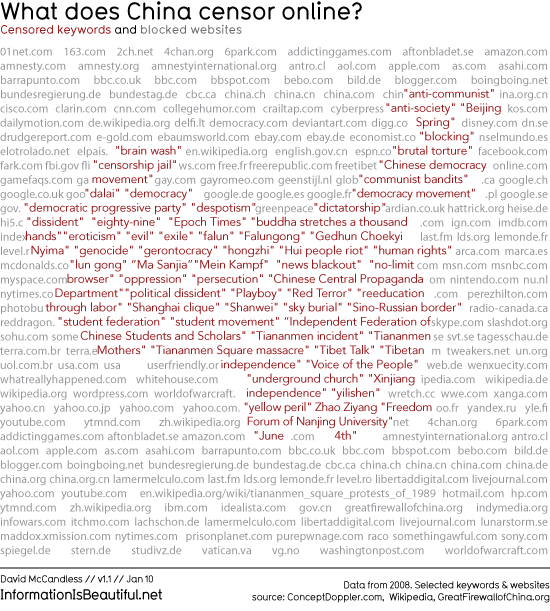
As a Chinese, I am very disappointed about the GFW. When I was in China, I could not even gain access to the Chinese version of Wikipedia to research on my school projects. There are still many internet users out there who are not aware or puzzled why the Chinese government ‘loves’ blocking popular websites. Well, below are the four main reasons why.
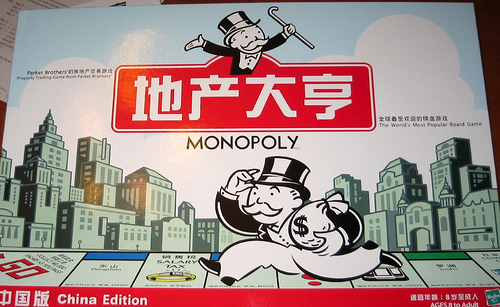
Without blocking Google, Baidu cannot succeed. Without blocking Wikipedia, Hoodongcannot succeed. Without blocking Blogger, Blogcn cannot succeed. Without blocking YouTube, Youku cannot succeed. The Chinese authorities did not like the idea of having Facebook, Twitter, or YouTube to dominate the Chinese internet, especially when China has about 384 million internet users. They prefer homegrown internet companies to stand out. If international websites were to take up a significant slice of share of the Chinese internet, it would make the Chinese government feel inferior. The government cannot simply give users the choice to choose. The authorities had to resort to blocking these foreign sites as soon as they start to gain some popularity and steal market share from local start-ups.
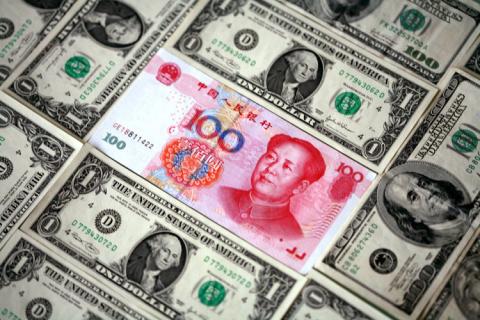
Facebook or Twitter need not to pay any sort of taxes to the Chinese government unless they set up an office in mainland China. However, local rivals such as RenRen1.com andSina’s Twitter-esque microblogging site have to give part of their revenue to the government in the form of taxes. The more popular they are, the more money the government collects. By blocking international social sites, it gives local sites an opportunity to succeed, and the government will then laugh all the way to the bank. If Facebook or Twitter were to dominate the Chinese internet, it would give rise to a situation where the government can no longer generate as much revenue as before.
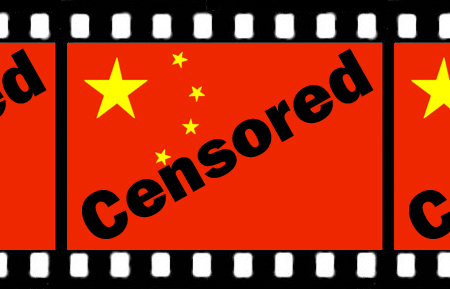
The main reason of blocking Google’s Blogger.com is that many Chinese netizens rant and post repugnant comments about the Chinese government on their Blogger-hosted blogs. Of course the government does not want such comments to spread like wildfire as it would portray a negative impression to the supporters of the communist party. With powers in their hands, they make use of the GFW to block it. In addition, the GFW is extremely sensitive when it comes to pornography content. Why Google International is blocked is due to the fact that the Chinese internet users can search pornography images via Google Images when the default setting of SafeSearch is switched off.
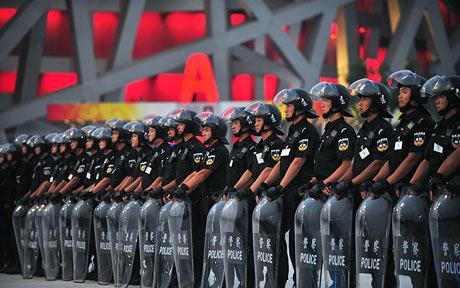
The government would not allow people to discuss about the various political parties or the government on those international websites because they do not have the ability to control them. Do not think that starting an internet company in China and creating websites is a child’s play. If your website contains unacceptable content (which includes pornography, violence, and negative comments targeted to the government), the Chinese authorities will demand you to remove the information at once. Failure to do so will result in a ban of your server for 3 months. It is quite easy for them to control the internet media in China, but they are not able to touch the social web, especially United States-based Facebook and Twitter.
These are the four major reasons of why the government blocked foreign websites. The Chinese authorities can control all Chinese websites. If they notice any trace of unsuitable content posted on the internet, they can demand users to delete, or they just simply block it. Few months ago, there have been quite a number of cases regarding the blocking of .CN domain names. And even .CN domain names are dangerous under the governmental control.
It is quite strange for me to complain about my home country in this Singapore-based tech blog. My main objective today is to let everyone know that the monopoly of ChinaLAN is not the only factor that spur the government to block popular international websites. Taxes, sensitive content and security also part a crucial role too. China is not as open as compared to Western countries such as the United States or United Kingdom, and limits freedom of speech. As a result, the Internet Life in China cannot be that wonderful, and I hope everyone can understand that blocking website is indeed the last resort to control the internet in China.






0 comments:
Post a Comment